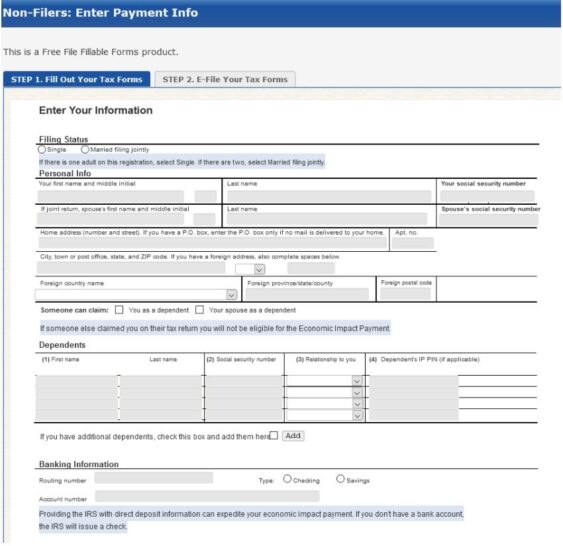SCAM: Thieves have a smart new tactic to steal your coronavirus payment

Check your bank account and you may see a $1,200 payout, or even more, pending from the federal government.
The IRS has already begun sending coronavirus “economic impact payments,” and the money is sorely needed as millions of Americans are out of work or not making enough cash to pay their bills. Tap or click to see how you can get help with your internet bill if you can’t pay right now.
Even if you didn’t file taxes the last couple of years, you’re entitled to receive the stimulus money. But you need to act fast. Scammers have come up with a clever way to steal your payout before you can get it.
Thieves targeting economic impact payments
If you filed taxes for 2018 or 2019 and the IRS has your direct deposit information on file, you don’t need to do anything to get your payment. If the IRS doesn’t have your bank account info, you’ll receive a check in the mail — but that will take much longer than direct deposit.
By Friday, you’ll be able to add your direct deposit details through the IRS website to expedite the payment. Tap or click for everything we know about the new site.
You may also like: How to easily make your own cloth face mask
But what about those who aren’t required to file taxes? The good news, first. Even if you didn’t file taxes in 2018 or 2019, you’re still owed stimulus money. The bad news? It’s easier than you’d think for a scammer to get to that money before you.
Act now before it’s too late
Millions of Americans are not required to file a tax return. That includes certain military veterans, some people with disabilities and low-income workers. If you fall into any of these categories, you need to take a couple of steps to get your share of the stimulus money.
The IRS needs personal info it typically receives through tax filings. That’s why the agency set up a site for non-filers, freefilefillableforms.com. It can also be reached through IRS.gov.
But there ‘s a huge flaw in this system. Scammers could potentially steal your payment right out from under you.

According to Krebs on Security, the site designed for non-filers to get their stimulus payment does not have adequate security protections. Namely, the portal has lax identification requirements that fraudsters could easily breach.
All a scammer would need to pull this heist off is some personally identifiable information easily found on the Dark Web. Details like your Social Security number and date of birth are for sale online — at very cheap prices. Tap or click here if you’re curious how much your info is going for online.
How does all this private info get out? Massive data breaches like the one at consumer credit reporting agency Equifax in 2017 exposed hundreds of millions of Social Security numbers and so much more.
For this stimulus check scam to work, acrook only needs to enter your name, address, date of birth and Social Security Number into the portal set up for non-filers. We’ve already established this information is available on the Dark Web, so it’s not difficult for a fraudster to get it.
Then, they just put their own bank account data into the portal and your funds will be deposited into their account. This is much too easy of a scam to pull off!
RELATED: How to protect against coronavirus fraud
Are there any decent security steps within the portal? Well, non-filers need to enter a phone number that’s able to accept text messages. Think two-factor authentication, but there’s nothing that prevents a cybercriminal from putting in his or her phone number to confirm “your” identity instead.
All the other identity checks are optional. Unbelievable.
That’s why you need to act fast if you’re a non-filer. You need to get your information entered into the portal ASAP before a criminal does it first.
We mentioned earlier a new feature on the IRS website for those who did file taxes in 2018 or 2019 but don’t have direct deposit info on file. We don’t know what to expect yet in terms of security, but we’ll say this: Don’t wait. Enter your direct deposit information on this new feature as soon as it’s available, too.
You may also like: Grocery orders being stolen before delivery
We’re all struggling to make it through this coronavirus pandemic, it’s unfortunate that shady people are out there taking advantage of it to rip us off. Sadly, this is the world we’re living in right now.
Tags: breaches, coronavirus, direct deposit, fraud, internet bill, IRS, pandemic, payment, scams/scammers, security, tax return, thieves
